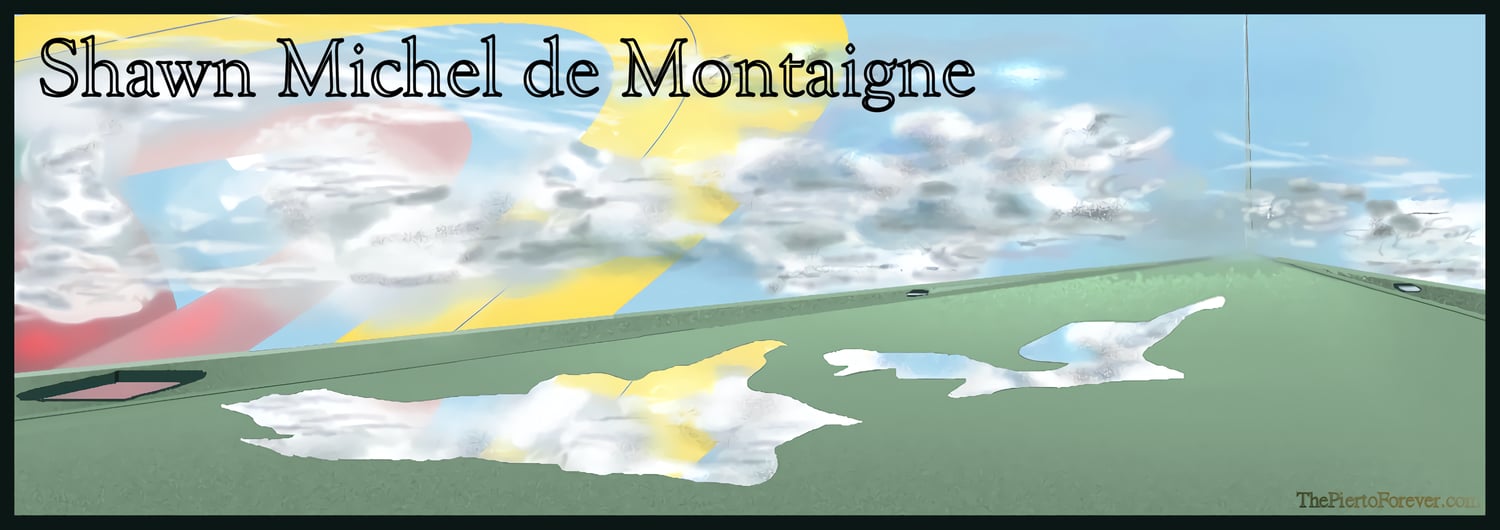
------
Chapter One
Chapter Two
Chapter Three
Chapter Four
Chapter Five
------
Chapter Six
Fundamental
Of course not!—The cops wouldn’t take her to the hospital; she’d have to drive there herself, even though she was so freaked out that she was worried she’d get into a big accident on the way and have to be hospitalized as well!
“Follow us,” one grunted, and got back into his cruiser.
She hurried into her car (a mid-90s red Honda hatchback) and quickly caught up to them as they stopped at the first stop sign leading out of the neighborhood.
She was so scared, and so angry, that all she remembered from the trip was screaming and pounding on the steering wheel, and crying so hard that it was almost impossible to keep driving.
But keep driving she did. She pulled up behind them at the emergency room entrance, where they escorted her inside.
“We’ll leave you here,” the black cop said, taking a moment to put a hand on her shoulder. “I hope your mom is all right.”
With that, they left her.
The nurse at the admitting desk, a large middle-aged woman, gave her a sympathetic smile. “Your mother is being looked after, dear. Have a seat and I’ll send someone to fetch you when she can receive visitors. There are vending machines down the hall, and a bathroom. Give me a shout if you need anything, okay?”
She reached and squeezed Laurie’s hand before going back to her computer screen.
Laurie went to the rows and rows of chairs in the waiting room, which was sparsely populated, and sat in a lonely corner.
Televisions provided low-level noise that sounded like pleasant conversation. She looked around. No one was talking.
On the table in front of her, magazines: Real Simplicity, People, Woman’s Day, Vogue and Cosmopolitan. For men, there was Rifle & Ammo, Boys’ Life, GQ, and a beat-up copy of FHM. She sighed, reached for it, and sat back. Before opening it, she glanced up.
Her stomach was in knots, her heart skipping from worry. Who the fuck was driving? Was it Aaron? Was it Terry? Were they drunk or high? Where the fuck were they?
She set the magazine down and went back to the desk and the kind woman.
“I’m sorry,” she said when the woman looked up from the screen. “I … my brother was involved in the same crash, along with other members of the band. Have they come in at all?”
“Meadowlark, was it?” she asked.
“Yeah. His name is Terry. Terry Meadowlark.”
She typed the name in and shook her head. “No one under that name has been admitted.”
“How about Aaron Keating?”
“No. Sorry.”
“Thank you.”
She went back to the chair and plopped down on it, puzzled.
Was Mom the only one seriously injured? If so, then where was Terry? Why wasn’t he here too? Didn’t the cop say that he was here?
She stood and went to the vending machines, bought a bag of chips and a coffee, and returned. She reopened the spent issue of FHM and began flipping through it. She passed a page with a big photo of …
She flipped back.
… Reuben Kincaid!
It was an entire article about him—“Reuben Kincaid Has Something to Say.”
She felt strange for being surprised. But then, she had sat with him the night before! She didn’t know why that made such a big difference. But it did.
The article was a well-written interview, maybe three thousand words, about his life and struggles.
I was an arrogant prick, she read. I’ve alienated or made enemies of far too many people. And all for what? So I could stand on some stupid red carpet at some overblown awards ceremony? So I could give some idiotic speech at that ceremony as I held up another trophy? So I could pretend to care about people I hated? So I could kiss more butt so that I could climb another rung on that rotten ladder?
The quote that stuck with her, however, was this one:
I long to return to more humble roots. I long to help up-and-comers. The music industry is manifestly corrupt. Unless you’re awash in cash and connections, you don’t stand a chance. The next Jimi Hendrix is out there somewhere—someone who’s maybe better than Hendrix, if anyone can imagine that—but he or she is going to give up soon because they weren’t born wealthy, like I was, who has to work his or her ass off for minimum fucking wage and can’t find the time to practice his or her art. That’s a crime. And we all pay for it.
She put the magazine down after finishing the interview and closed her eyes.
There was a point in the seven hours that she waited, one that would only come apparent to her years later, that something fundamental changed within her then, something essential, something that would give her the courage and fortitude to press on when all seemed hopeless, when all seemed lost.
She had always been a rebellious individual, but not in the sense of her peers, who called “rebellious” getting high, screaming at parents, staying out all night, flunking classes, tattooing themselves, posting pornographic selfies online, and generally cultivating an attitude of complete indifference and apathy.
That wasn’t rebelliousness. That was just plain fucking stupidity masquerading as rebelliousness.
True rebellion was a quality of spirit, of soul, that continually fortified itself against the corrupting lunacy of others, of what they considered worthy, what they considered “real” or “cool.” It didn’t involve tattoos or wearing low-rider pants with your thongs showing; it didn’t concern itself with screaming at parents or teachers; it didn’t care about status or popularity.
Mom had told her once: “You’ve got a backbone of solid steel. When you truly care about something, you don’t back down. I’d love to think I gave that to you, but I’m pretty sure you got it largely on your own.”
Four hours into her wait, she sat up, blinking, and grabbed her phone out of her purse and dialed. It was coming up on 6, but she didn’t care.
Knox answered after six rings. “H-Hello?”
The simple sound of his voice overwhelmed her, and she started crying. “Knox?”
“Laurie. What’s wrong?”
Forty minutes later, he met her at the big sliding doors. She flew into his arms.
At 8:45, a nurse approached. “Laurie Meadowlark?”
“Yeah?” she answered. Knox had picked them up some breakfast from a local diner they both loved; she was finishing her rye toast when the nurse appeared.
“I can take you to ICU to see your mother.”
“Can Knox come too?” she replied when she got over the thought that Mom was in the Intensive Care Unit.
“I’m sorry. Just family.”
“It’s okay, Laurie. Let her know … you know …”
“I will,” she said, standing. “You don’t have to stay here …”
He gave her his classic Knox look of exasperation: impatiently raised eyebrows, his head tilted slightly to the side and eyes blinking rapidly. She cupped his face and kissed the top of his head. “Thank you so much for being here. Go ahead and eat the rest of my home fries. But I want the rest of my sandwich!”
They led her across a large room with a nurse’s station in the center and many yellow plastic curtain-drawn enclosures with patients in beds.
No one talked; only the mechanical sounds of ventilators, beeping monitors, and the like could be heard. The room was dimly lighted and very warm, the nurse’s faces grave as they hurried here and there.
The nurse escorting her took her to the far right enclosure, which was brighter than the rest due to the big window at the corner. She pulled the plastic curtain back, and Laurie cried, “Oh my God! …” before running to Mom, who was on a breathing machine and with multiple IVs in her arms, her head wrapped down to her eyebrows, her left arm and leg in a cast. Her face was almost all purple and black.
“I … I’m going to throw up!” she cried just before she did. The nurse just managed to get a silver container under her chin; Laurie collapsed to her knees and heaved violently, crying and gasping. The nurse cupped her forehead and waited patiently.
When the gagging stopped, the nurse helped her to her feet while another set about cleaning up the vomit that missed the container.
“I’m … I’m sorry,” she cried.
The cleaning nurse stood and said, “It’s okay. Are you going to be okay?”
The other said, “Here. Sit in this chair. I’ll come back with some soda. It’ll help calm your tummy.”
She sat in the chair next to the bed and wept without restraint. “Is … is … she going to be okay?” she got out.
“It’s too early to know,” said the nurse. “She’s in very serious condition. We’ll have a better idea in twenty-four hours or so.”
The nurse left, the little enclosure smelling richly of sick, and pulled the curtain around.
Laurie reached for Mom’s good arm, lowered her head to it, and bawled. A few minutes later, her phone rang. She pulled it out of her purse and saw that it was Knox.
“How is she?” he asked.
It took her a good minute before she could answer. She put down the soda the nurse had brought, wiped her nose, and struggled to get a hold of herself. “She’s … she’s … oh, Knox …”
She could barely hear him whisper, “I’m so sorry …”
“I don’t know what to do! I feel … so … helpless!”
“I’m here for you, all right? You can stay at my place if you want. Just … have somebody to talk to.”
Never in her entire life had she feel so adrift and heartbroken. And angry. More anger than she had ever felt. Anger that she knew was never going to go away, even if Mom recovered fully. Anger so potent that she knew if Terry walked in right now—or that asshole Keating—she’d kill them.
Knox must have read her mind, because he said, “I know where your brother and Aaron are. They’re in jail. It’s on the news. Both had more than twice the legal limit of alcohol in their systems, and were high as well. Keating was driving the van. They hopped a curb and ran almost headlong into the Orange Line as it was slowing for City College. Cops said the van was doing seventy—in a thirty-mile-per-hour zone. Your mom was thrown through the side window. The van’s seat belts were either not there or not working. It’s a miracle she’s even alive, Laurie. The van was just totaled. Those two, though, walked away without a damn scratch. The other two—Lansing and the other newbie … they went to another hospital. Apparently they are okay.”
A nurse came in half an hour later and told her that her visiting hour was through. Laurie didn’t know that ICU patients were only given an hour each day to be with their families. The helplessness increased as she kissed Mom’s cheek. “I love you. I’ll be back tomorrow. Please get better. I love you … I love you …”
Knox was still waiting for her. She ran into his arms. Grief and anger had taken so strong a hold of her that she couldn’t walk once he had her in his embrace. It was like the energy she had to even get back down here to him was borrowed, and now that reserve was gone. As she wailed in his neck, he picked her up like she was his young daughter and took her to his car. There he got her secure in the passenger seat and drove to his house, where he laid her on the bed in the guestroom.
~~*~~


Comments ()